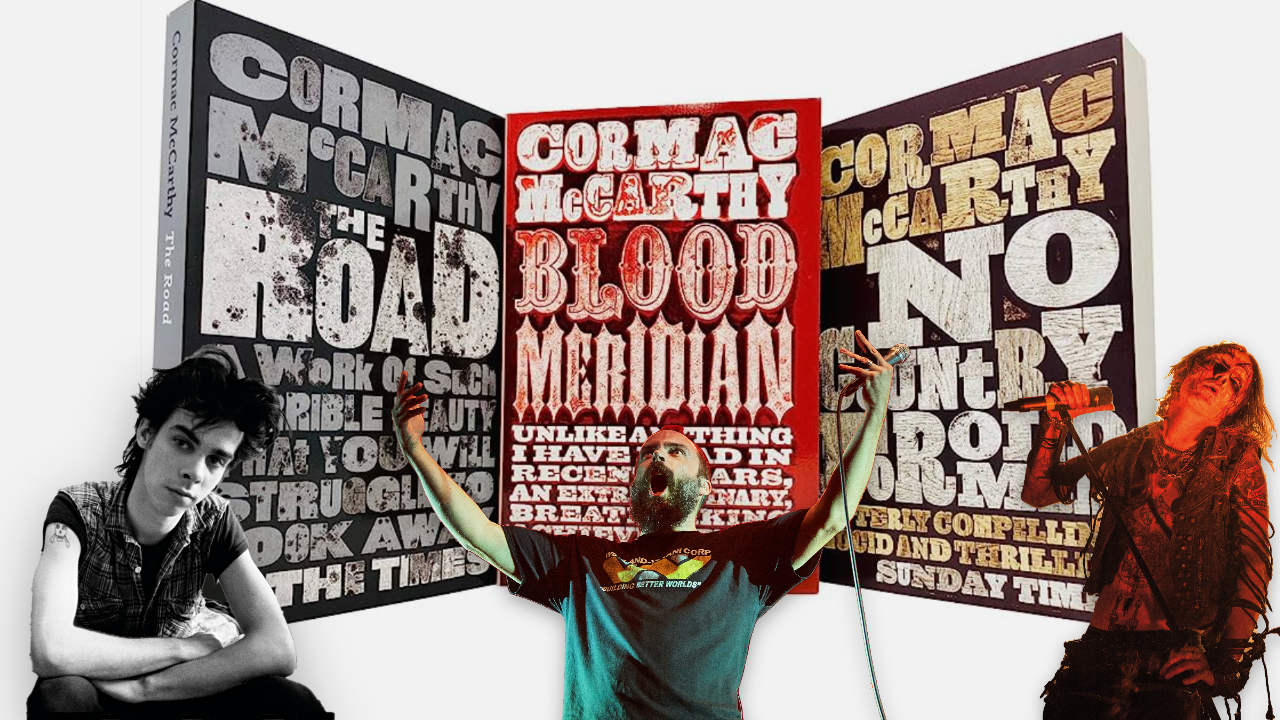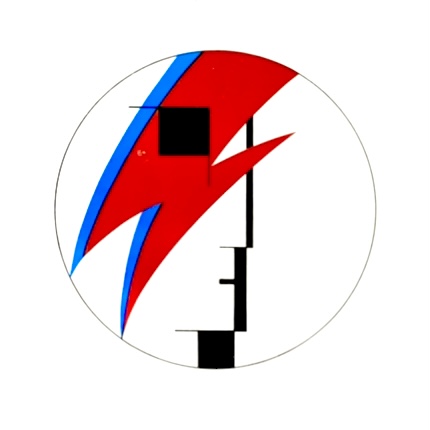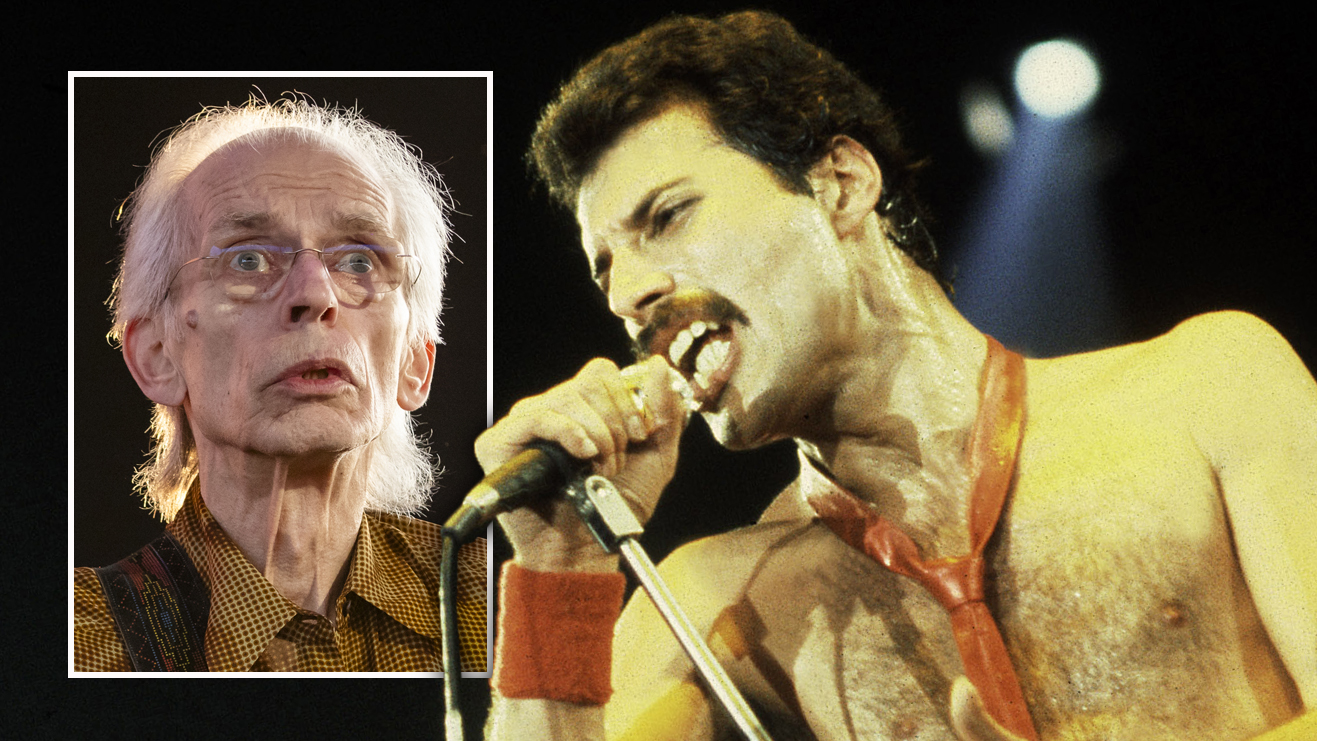Cormac McCarthy was the author of heavy books. In turn, those books inspired some very heavy music

Select the newsletters you’d like to receive. Then, add your email to sign up.
You are now subscribed
Your newsletter sign-up was successful
Want to add more newsletters?

Every Friday
Louder
Louder’s weekly newsletter is jam-packed with the team’s personal highlights from the last seven days, including features, breaking news, reviews and tons of juicy exclusives from the world of alternative music.

Every Friday
Classic Rock
The Classic Rock newsletter is an essential read for the discerning rock fan. Every week we bring you the news, reviews and the very best features and interviews from our extensive archive. Written by rock fans for rock fans.

Every Friday
Metal Hammer
For the last four decades Metal Hammer has been the world’s greatest metal magazine. Created by metalheads for metalheads, ‘Hammer takes you behind the scenes, closer to the action, and nearer to the bands that you love the most.

Every Friday
Prog
The Prog newsletter brings you the very best of Prog Magazine and our website, every Friday. We'll deliver you the very latest news from the Prog universe, informative features and archive material from Prog’s impressive vault.
Cormac McCarthy has died aged 89. The author of No Country For Old Men, The Road, Blood Meridian and many more, he was acclaimed as one of the world's finest writers. Stephen King wrote on Twitter that McCarthy was "maybe the greatest American novelist of my time".
McCarthy's books could be psychedelic, apocalyptic, gothic, horrific and very heavy. Heavy in their subject matter, heavy in tone. Like a lot of the music he inspired, they could be unrelenting, unforgiving, with an unflinching eye for human nature. His art was not escapist and it could be difficult – but it rewarded you in spades.
Both Bruce Springsteen and Nick Cave count Blood Meridian and The Road among their favourite books. Cave and Warren Ellis supplied the soundtrack to the movie version of The Road.
“I love that book," Cave said. "It’s clever, that book, because the environment that they’re living in is so unremittingly pessimistic that he’s able to weave this extraordinarily sentimental story about the love between father and son and completely get away with it.”
Clutch's Neil Fallon named Blood Meridian and Child Of God as two of his favourite books in an interview with Louder. "I believe Cormac McCarthy is one of the best writers of our age," he said. "McCarthy has an unbelievable ability to paint beautiful images with an economy of words and then interrupt those vistas with unspeakable violence. Make no mistake, Blood Meridian could easily be shelved in the horror section. Set in the American West around 1850, McCarthy offers a brutally honest portrayal of America’s barbaric application of manifest destiny. Judge Holden is possibly the most terrifying villain ever imagined."
The Clutch song Book of Bad Decisions – lyric: ‘I walked into the station, all covered in blood’ – was inspired by McCarthy.
“Lyrically, this was inspired by Cormac McCarthy, who we’re both huge fans of," said drummer Jean-Paul Gaster. "It’s this idea of describing scenarios in beautiful but grotesque detail, almost as if you’re in the room.”
The latest news, features and interviews direct to your inbox, from the global home of alternative music.
“Touring, pre-cellphones," explained Fallon, "we’d be waiting in line to use the only working payphone in town, and at 3am you’d run into some very interesting characters, giving you looks like: ‘If you don’t hang up soon, you won’t see sunrise.’ This was a tribute to that, in a typically McCarthy way; there’s a person covered in blood, trying to get from point A to point B during the dark night of the soul.”
Watain's 2013 album, The Wild Hunt featured the track They Rode On, also inspired by Blood Meridian. In an interview with Metal Hammer, Erik Danielsson explained: “It was just one of these books that grabbed me by the neck and took me far, far down below. It reminded me of the pilgrimage that we have been on with Watain, of the long and hard road through the desolate wilderness. A melancholic vastness mixed with rampant outbursts of blood-soaked barbarism… They Rode On is heavily inspired by the feelings that this book gave me.”
Every song on Earth's 2005 album Hex; Or Printing in the Infernal Method was named after a phrase from Blood Meridian ("That's the one that's the most violent or occult, but all of his books deal with that theme of the West and the frontier and its violence and effects," Dylan Carlson told Terroriser. "It's more about capturing that sense of place. As someone born in America, I definitely consider myself a product of the frontier and the history of it has influenced me.")
Ben Nichols of alt.country band Lucero recorded a solo album called The Last Pale Light In The West, with each song based on characters from Blood Meridian. "You've got these two opposing forces," he told NPR. "The innocence of the kid – who's, I think, 14, 15, 16 through most of the book – and then this character, the Judge, who is brilliant but also very evil. It's basically a Western, but these two characters in this particular setting really caught my imagination."
The title track from The Last Pale Light In The West was used as "The Governor's Theme" in TV show The Walking Dead. "The whole song is originally based on a line out of the Blood Meridian novel by Cormac McCarthy, which is a very apocalyptic western written in the 80s," Nichols explained. "One of my favourite novels – probably my favourite. The Last Pale Light In The West is written in this voice where you don't know if the narrator really cares if he lives or dies. But there's a glimmer of hope still, which comes from Cormac's novels. I think he leaves that little bit of hope in a lot of his stories like No Country For Old Men."
Hope, pain, death, intensity, honesty, brutality. It sounds like our favourite music. No wonder he was such an influence.
"Everything's interesting," McCarthy said in a rare interview. "I don't think I've been bored in 50 years. I've forgotten what it was like."
Blood Meridian, The Road and No Country For Old Men are available to buy as a set.

Tom Poak has written for the Hull Daily Mail, Esquire, The Big Issue, Total Guitar, Classic Rock, Metal Hammer and more. In a writing career that has spanned decades, he has interviewed Brian May, Brian Cant, and cadged a light off Brian Molko. He has stood on a glacier with Thunder, in a forest by a fjord with Ozzy and Slash, and on the roof of the Houses of Parliament with Thin Lizzy's Scott Gorham (until some nice men with guns came and told them to get down). He has drank with Shane MacGowan, mortally offended Lightning Seed Ian Broudie and been asked if he was homeless by Echo & The Bunnymen’s Ian McCulloch.
